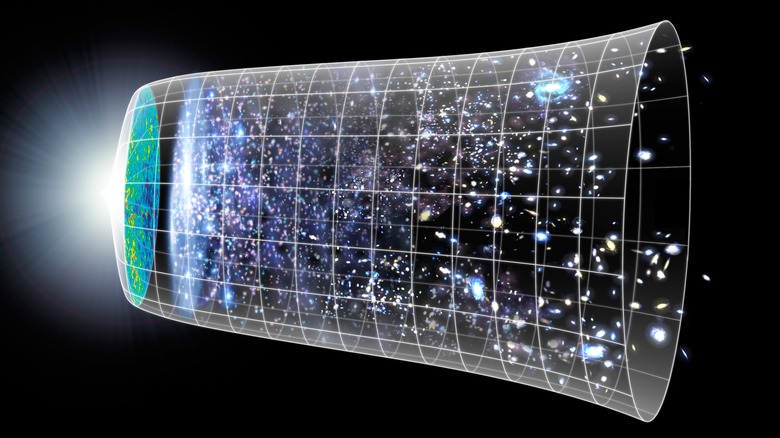Is The Universe Actually Infinite? Here's What Astrophysicists Say
Is the universe infinite? It's one of the most profound questions we can ask, and here's the short answer: We don't know. While we have learned a great deal about the universe, a portion of the cosmos we can see, scientists agree that whether space goes on forever — or wraps around in some bizarre shape — remains unsettled. Several plausible theories do exist, though. Some suggest the universe is truly infinite, stretching without a boundary. Others allow for a finite cosmos that nonetheless has no "edge" in the ordinary sense.
Despite the powerful observations and theoretical advances, researchers routinely emphasize that the ultimate answer may lie beyond our reach. We simply don't know if the universe is finite or not. However, there is plenty that we do know about the observable universe and the most distant galaxies that could give us a hint in which direction we should think. But we should humbly keep in mind that we may never manage to answer the question of an infinite vs a finite universe.
What we do know
We know for certain that the observable portion of the universe is finite. Because light travels at a finite speed and scientists have learned from colliding black holes that universe has been expanding, we can only ever see out to a certain "horizon." We also know that the universe has been expanding since the Big Bang: Galaxies recede from one another, and the further two galaxies are, the faster their separation appears to be increasing. An excellent way to picture the universe's expansion is to imagine a balloon with dots drawn on its surface. As you inflate the balloon, each dot moves away from all the others. The more you inflate, the more distant every pair becomes. That analogy captures how space itself stretches, carrying galaxies apart.
That said, we don't know the shape of the universe and whether it has edges or if it extends endlessly. Current measurements of the cosmic curvature suggest the universe is spatially flat. That doesn't necessarily mean the universe is a disc, though. Imagine two laser beams side by side shooting across the space. As defined in cosmology, in a flat universe, those beams would never cross or drift apart, even after traveling for billions of years.
The universe being flat doesn't answer the question of infinite versus finite, but it gives two very distinct options. If the universe is flat like an endless sheet of paper, that implies it is infinite. But it could also be flat in the shape of a torus (a donut or ring shape), and it would be finite, but it would have no boundary. In effect, the flat geometry we observe still leaves room for a global topology that is finite yet edgeless, and our current observational precision is insufficient to distinguish between the two in a definitive way.
Why we may never know the truth
Even with incredible advancements in cosmic observation, our ability to determine whether the universe is truly infinite or merely vast faces major limitations. On the theoretical side, astrophysicists hold different opinions and beliefs about the ultimate answer. Some lean towards infinite, and others toward a finite universe but with peculiar topology. Then, further complicating things, there's also the multiverse theory. Such divergences underscore the speculative nature of the question. Because we observe only a portion of the universe, any conclusions about the entire cosmos require an extrapolation that might never be testable.
We are unable to rerun the universe or perform controlled experiments on cosmic scales. We rely tremendously on passive observations of what we can see. That means questions about what lies beyond our horizon, how space is connected, whether there is an edge, or if time or space extends infinitely, may remain unanswerable. Finally, the universe may be so large that even if it's finite, distinguishing that from the "infinite" may forever elude us. And if it's infinite to some extent, we may never observe evidence of a boundary. Either way, the question may transcend our empirical reach.


